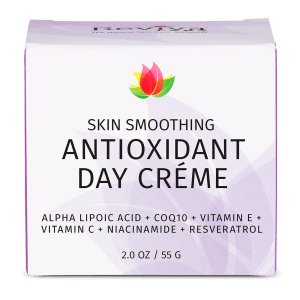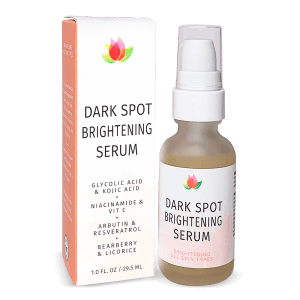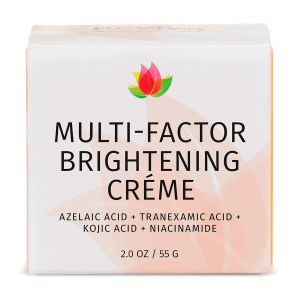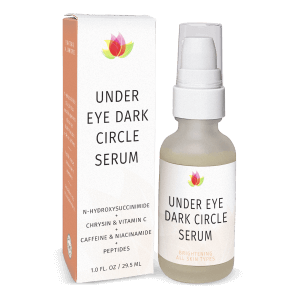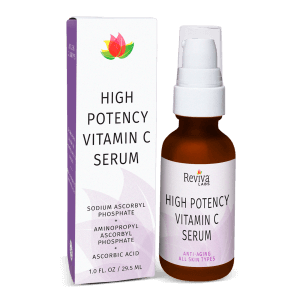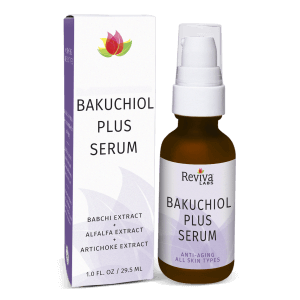Niacinamide, a form of Vitamin B3, is making waves in the skincare industry for its wide array of benefits, especially its potential to brighten the skin. It’s essential to understand the science behind niacinamide to truly appreciate its role in enhancing skin health.
Antioxidant Properties and Skin Protection
Niacinamide functions as a powerful antioxidant. This characteristic is vital in combating oxidative stress caused by environmental factors like UV rays, which can lead to premature skin aging. By defending against such stressors, niacinamide aids in maintaining the integrity and youthful appearance of the skin.
Niacinamide’s Role in Reducing Inflammation
One of niacinamide’s key benefits is its ability to reduce inflammation. This is particularly beneficial for those with acne-prone or sensitive skin, as it helps in soothing irritation and redness. Additionally, this anti-inflammatory action can assist in diminishing fine lines and wrinkles, contributing to a smoother skin texture.
The Brightening Effects of Niacinamide
The brightening effects of niacinamide on the skin are a topic of considerable interest in the field of dermatology. This vitamin B3 derivative is known for its ability to regulate the production and transfer of melanin to the skin’s surface. According to a study published in the “Journal of Cosmetic Dermatology,” niacinamide effectively reduces the appearance of hyperpigmentation and age spots, leading to a more uniform skin tone (Navarrete-Solís et al., 2011). This reduction in melanin transfer is particularly beneficial for addressing issues like melasma and post-inflammatory hyperpigmentation.
Furthermore, research published in the “British Journal of Dermatology” has highlighted niacinamide’s efficacy in improving skin luminosity. The study found that niacinamide could increase the production of ceramides and free fatty acids in the skin, thereby enhancing the skin’s barrier function (Tanno et al., 2000). A stronger skin barrier not only protects against environmental damage but also ensures better hydration. Well-hydrated skin has a natural glow and appears more radiant.
Another critical aspect of niacinamide’s skin-brightening capabilities is its anti-inflammatory properties. Inflammation can exacerbate skin dullness and uneven tone. A study in the “International Journal of Dermatology” noted that niacinamide’s anti-inflammatory action helps in calming the skin, reducing redness, and promoting an even skin tone (Niren, 2006). This is particularly relevant for individuals with sensitive or reactive skin, where inflammation can lead to discoloration and blotchiness.
Lastly, the combination of niacinamide with other skin-brightening agents, such as vitamin C or retinoids, has been a subject of interest. A publication in the “Journal of Clinical and Aesthetic Dermatology” emphasized that when used in tandem, these ingredients can work synergistically to enhance the overall brightening effect, leading to more significant improvements in skin luminosity and texture (Levin et al., 2010).
The brightening effects of niacinamide on the skin are well-supported by scientific research. Its ability to regulate melanin production, enhance skin barrier function, and reduce inflammation makes it a valuable ingredient in addressing skin dullness and achieving a more radiant and even complexion.
Improving Skin Hydration and Texture
Niacinamide plays a significant role in enhancing skin hydration and texture. Hydrated skin reflects light more effectively, contributing to a brighter complexion. The ingredient also promotes the production of ceramides, which are vital in maintaining the skin’s moisture barrier, further improving skin texture.
Combining Niacinamide with Other Skincare Ingredients
A notable advantage of niacinamide is its compatibility with other skincare components. It can be paired with ingredients like hyaluronic acid, retinol, and vitamin C to target multiple skin concerns, enhancing the overall effectiveness of skincare routines.
Choosing the Right Niacinamide Product
When incorporating niacinamide into your skincare regime, selecting the right product is crucial. Niacinamide is available in various concentrations and formulations, from serums to creams. Choosing a product that aligns with your specific skin needs and sensitivities is key for optimal results.
The Long-term Benefits of Consistent Niacinamide Use
Regular and prolonged use of niacinamide can lead to noticeable improvements in skin health. Consistency is vital for achieving and maintaining benefits such as enhanced skin brightness, improved texture, and overall healthier-looking skin.
Niacinamide as a Versatile Skincare Hero
In summary, niacinamide is a multifaceted and potent skincare ingredient with a plethora of benefits, including the ability to brighten the skin. Its antioxidant, anti-inflammatory, and hydrating properties make it an invaluable addition to various skincare routines, catering to a range of skin concerns and types.
References:
- Navarrete-Solís, J., Castanedo-Cázares, J. P., Torres-Álvarez, B., Oros-Ovalle, C., Fuentes-Ahumada, C., González, F. J., … & Moncada, B. (2011). A double-blind, randomized clinical trial of niacinamide 4% versus hydroquinone 4% in the treatment of melasma. Journal of Cosmetic Dermatology, 10(3), 174-181.
- Tanno, O., Ota, Y., Kitamura, N., Katsube, T., & Inoue, S. (2000). Nicotinamide increases biosynthesis of ceramides as well as other stratum corneum lipids to improve the epidermal permeability barrier. British Journal of Dermatology, 143(3), 524-531.
- Niren, N. M. (2006). Pharmacologic doses of nicotinamide in the treatment of inflammatory skin conditions: a review. International Journal of Dermatology, 45(1), 13-22.
- Levin, J., Momin, S. B. (2010). How much do we really know about our favorite cosmeceutical ingredients? Journal of Clinical and Aesthetic Dermatology, 3(2), 22-41.







